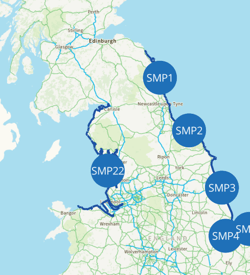RELATED NEWS

Award-winning Innovation at HM Treasury: how Hawkeye is transforming data management
3 min read

Home Office awards new £10m DDaT contract
1 min read

Workday Wins UK ‘Matrix’ ERP Deal Over Oracle and Microsoft
2 min read

DSIT awards £214 million in Matrix contracts to strengthen digital capabilities
1 min read

 around England’s coasts.
around England’s coasts.  practitioners to plan and adapt to a changing climate.
practitioners to plan and adapt to a changing climate. 
